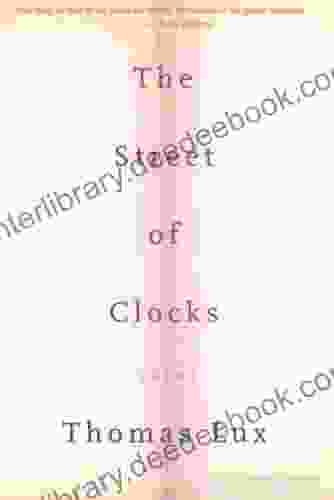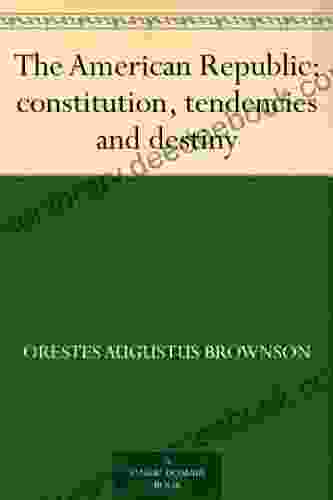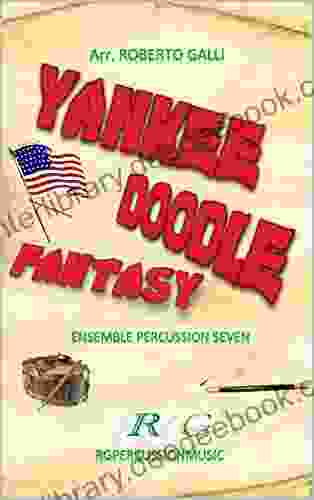Algorithmic Information Theory (Cambridge Tracts in Theoretical Computer Science)

Algorithmic information theory is a field of mathematics that explores the limits of computation. Algorithmic information theory investigates the amount of information that can be extracted from a given string of data, and it has applications in a wide range of fields, including computer science, statistics, and biology.
One of the central concepts in algorithmic information theory is the Kolmogorov complexity of a string. The Kolmogorov complexity of a string is the length of the shortest program that can generate the string. For example, the Kolmogorov complexity of the string "Hello world!" is 12, because the following program can generate the string:
print("Hello world!")
4.7 out of 5
| Language | : | English |
| File size | : | 21497 KB |
| Print length | : | 192 pages |
| Screen Reader | : | Supported |
The Kolmogorov complexity of a string can be used to measure the amount of information that is contained in the string. A string with a low Kolmogorov complexity contains a lot of information, while a string with a high Kolmogorov complexity contains little information.
Algorithmic information theory has a number of applications in computer science. For example, algorithmic information theory can be used to:
- Compress data
- Detect plagiarism
- Identify patterns in data
Algorithmic information theory is also used in statistics and biology. For example, algorithmic information theory can be used to:
- Estimate the size of a population
- Identify the most likely explanation for a set of data
- Predict the future
Algorithmic information theory is a powerful tool that can be used to solve a wide range of problems. This book provides an to algorithmic information theory, and it covers the basic concepts, theorems, and applications of the field.
The basic concepts of algorithmic information theory are relatively simple. The central concept in algorithmic information theory is the Kolmogorov complexity of a string. The Kolmogorov complexity of a string is the length of the shortest program that can generate the string.
For example, the Kolmogorov complexity of the string "Hello world!" is 12, because the following program can generate the string:
print("Hello world!")
The Kolmogorov complexity of a string can be used to measure the amount of information that is contained in the string. A string with a low Kolmogorov complexity contains a lot of information, while a string with a high Kolmogorov complexity contains little information.
Another important concept in algorithmic information theory is the universal Turing machine. A universal Turing machine is a Turing machine that can simulate any other Turing machine. This means that a universal Turing machine can be used to compute any computable function.
The universal Turing machine is a powerful tool that can be used to solve a wide range of problems. However, the universal Turing machine is not very efficient. For example, the universal Turing machine cannot compute the Kolmogorov complexity of a string in a reasonable amount of time.
Algorithmic information theory has a number of important theorems. One of the most important theorems in algorithmic information theory is the Kolmogorov-Chaitin theorem. The Kolmogorov-Chaitin theorem states that the Kolmogorov complexity of a string is equal to the entropy of the string.
The Kolmogorov-Chaitin theorem is a fundamental result in algorithmic information theory. It shows that the Kolmogorov complexity of a string is a measure of the amount of information that is contained in the string.
Another important theorem in algorithmic information theory is the Levin-Li-Vitányi theorem. The Levin-Li-Vitányi theorem states that the Kolmogorov complexity of a string is equal to the minimum description length of the string.
The Levin-Li-Vitányi theorem is another fundamental result in algorithmic information theory. It shows that the Kolmogorov complexity of a string is a measure of the amount of information that is contained in the string.
Algorithmic information theory has a number of applications in computer science, statistics, and biology. Some of the applications of algorithmic information theory include:
- Data compression
- Plagiarism detection
- Pattern recognition
- Population estimation
- Model selection
- Prediction
Algorithmic information theory is a powerful tool that can be used to solve a wide range of problems. This book provides an to algorithmic information theory, and it covers the basic concepts, theorems, and applications of the field.
Algorithmic information theory is a fascinating and rapidly growing field of mathematics. Algorithmic information theory has a wide range of applications in computer science, statistics, and biology. This book provides an to algorithmic information theory, and it covers the basic concepts, theorems, and applications of the field.
4.7 out of 5
| Language | : | English |
| File size | : | 21497 KB |
| Print length | : | 192 pages |
| Screen Reader | : | Supported |
Do you want to contribute by writing guest posts on this blog?
Please contact us and send us a resume of previous articles that you have written.
 Page
Page Chapter
Chapter Text
Text Reader
Reader Library
Library Paperback
Paperback E-book
E-book Magazine
Magazine Paragraph
Paragraph Sentence
Sentence Shelf
Shelf Glossary
Glossary Foreword
Foreword Synopsis
Synopsis Annotation
Annotation Scroll
Scroll Codex
Codex Bestseller
Bestseller Classics
Classics Autobiography
Autobiography Memoir
Memoir Reference
Reference Dictionary
Dictionary Thesaurus
Thesaurus Character
Character Librarian
Librarian Borrowing
Borrowing Periodicals
Periodicals Study
Study Research
Research Lending
Lending Journals
Journals Reading Room
Reading Room Rare Books
Rare Books Special Collections
Special Collections Thesis
Thesis Dissertation
Dissertation Reading List
Reading List Book Club
Book Club Theory
Theory Evans Charira
Evans Charira Adam Black
Adam Black Felicia Harper
Felicia Harper Khalid Y Shakur
Khalid Y Shakur Tracy C Davis
Tracy C Davis J Paulo Davim
J Paulo Davim Rosie Clarke
Rosie Clarke Dan Joseph
Dan Joseph Samanta Schweblin
Samanta Schweblin Raquel Prado
Raquel Prado Leslie Kemp Poole
Leslie Kemp Poole Anne Clermont
Anne Clermont Sue Beeton
Sue Beeton Jordana Landsman
Jordana Landsman Taki Drake
Taki Drake Andy Jordan
Andy Jordan Ian Mcdonald
Ian Mcdonald Marty Fort
Marty Fort Susan N Herman
Susan N Herman Rianne Burnett
Rianne Burnett
Light bulbAdvertise smarter! Our strategic ad space ensures maximum exposure. Reserve your spot today!

 Dominic SimmonsHome for the Summer: Yorktide, Maine - A Captivating Journey of Love and Loss
Dominic SimmonsHome for the Summer: Yorktide, Maine - A Captivating Journey of Love and Loss
 Douglas AdamsUnraveling the Enigmatic Saga of the Admiral Heart: The de Montforte Brothers...
Douglas AdamsUnraveling the Enigmatic Saga of the Admiral Heart: The de Montforte Brothers... Miguel NelsonFollow ·13.8k
Miguel NelsonFollow ·13.8k Troy SimmonsFollow ·15.1k
Troy SimmonsFollow ·15.1k Roland HayesFollow ·14.6k
Roland HayesFollow ·14.6k Jamison CoxFollow ·19.9k
Jamison CoxFollow ·19.9k Todd TurnerFollow ·19.2k
Todd TurnerFollow ·19.2k Samuel BeckettFollow ·15k
Samuel BeckettFollow ·15k Patrick HayesFollow ·12.8k
Patrick HayesFollow ·12.8k Robbie CarterFollow ·12.9k
Robbie CarterFollow ·12.9k

 Bo Cox
Bo CoxDiscover the Enchanting Allure of Collingwood, Ontario,...
Nestled amidst the breathtaking landscape of...

 Ralph Ellison
Ralph EllisonThe Street of Clocks Poems: A Poetic Journey Through Time
Welcome to The Street...

 Dwight Blair
Dwight BlairCritical Political Economy of the Middle East and North...
The Middle East and...

 Deion Simmons
Deion SimmonsPerfect Strategies For Painting Amazing Marine Creatures...
Gouache is a...

 Hugh Bell
Hugh BellThe American Republic: Constitution, Tendencies, and...
The American Republic,...
4.7 out of 5
| Language | : | English |
| File size | : | 21497 KB |
| Print length | : | 192 pages |
| Screen Reader | : | Supported |










